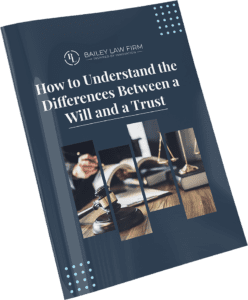
Corporate by-laws are an integral category of legal documentation for any entity. This may involve an association, partnership or corporation.
Corporate by-laws are the base that help companies write day to day rules for the working of an organization.
They also provide a lot of comprehensive guidelines that help in letting things run smoothly.
Corporate by-laws give an outline of the structure of the organization. They can easily be personalized for every situation. These protect and establish the duties and rights of an organization, executive committee, and the Board of Directors.
By-laws also help in determining how the process of election and nomination works for authorities. They cover the settlement of any disputes. Corporate by-laws may need to be formalized and amended as and when required.
Useful information about corporate by-laws
Articles of Incorporation vs. By-laws
Many people get confused between the by-laws of an organization and the Articles of Incorporation.
The primary difference here is that the Articles of Incorporation state the basic outline of a company. by-laws on the other hand cover integral topics such as:
- The procedure of how meetings are conducted
- Different duties and types of officers
- Articles of Incorporation help in getting information such as the name of the person. The number of shares that a corporation can issue and also the names of the corporation along with the location.
Much like corporate by-laws, Articles of Incorporation keep varying between the corporations but do not get very detailed.
Important constituents of the by-laws
While the set of by-laws are specific to different organizations, here are the essential components that one needs to follow for maintaining the by-laws:
- Name, Purpose, and Location
- Board of directors
- Officers
- Committees
- Amending by-laws
- Conflict of Interest
- Meetings
- Members
Here is a detailed analysis of each:
Name, Purpose, and Location First things first, your by-laws should mention the name of the organization. This should not only be stated in the by-laws but should precede all the other information. You would then need to know the purpose of the organization. Finally, the location of your organization is important too.
Board of directors
This section is easily one of the most integral constituents of your by-laws. It is the primary governing body of any organization. This particular section should cover the board composition; wherein the maximum, minimum and specific number of directors is mentioned. You would also need to mention how vacancies get filled, whether the board has to fill them or whether it it is done through the other members. Ultimately, the by-laws need to specify the qualifications required for directors, including the length, the duties as well as the possible classes in which they are elected.
Officers
You would also need officers on board who perform very specific duties. This section would need to discuss how officers get selected along with their powers, duties, and responsibilities. The length of an officer’s terms is also mentioned in this section of the by-laws.
Committees
If your organization consists of any committees, their detailed information needs to be mentioned here. Starting with when are they appointed, their specific job role as well as the responsibilities. Some examples of committees include- Nominating, Membership, and Audit committee.
Amending by-laws
Like every tool that we have for our advantage, a standby option should be made to change it if required. If you feel you are in a nascent stage, then ensure you have a policy set for the amendment of by-laws. Rightfully, by-laws should be changed every five years or at least revised based on the growth of the company. It is crucial that they accurately represent the current regulations to fit everybody’s needs. In this section, you would need to mention who can vote for the amendments along with who is allowed to recommend it.
Conflict of Interest
It is crucial for an organization to have a conflict of interest provision. This will not only protect them from IRS penalties but also avoid providing any unfair advantage to the directors, members or any individuals. For instance, a director cannot be allowed to give his opinion where they have a direct interest or gain. Such by-laws help keep the work culture fair and safe.
Meetings
You would also need to mention the different kinds of meetings in your by-laws. Starting from regular, to special to annual- all types of meetings would need to be discussed here. This includes the place and the time of the meetings along with how much time may be required for procedures like informing the board, mandatory attendance, etc.
Members
This particular section consists of different aspects of membership. The information mentioned here typically comprises of the following:
- Different types of members of an organization
- The membership selection process in detail
- Voting rights of members
- Procedures in case the members need to be disciplined or removed
In a nutshell, this section consists of all the important information associated with members of a corporation.
We hope the aforementioned information acts as a framework for you before you finalize your by-laws. As we have established, by-laws are a crucial part of a company’s working; hence we recommend that you pay special attention to each and every point mentioned in them. Please get in touch with us if you need to get proper advice on how to go about legal issues for your company. We are always happy to navigate you through the process.

